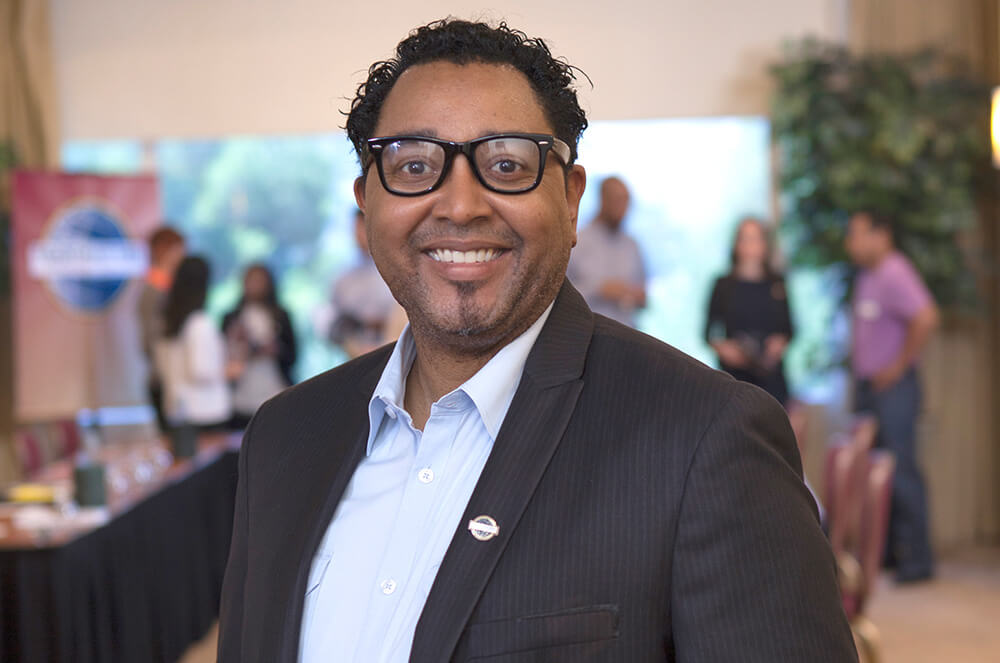
The Area Director position is often hailed as “the best job in Toastmasters!” While this may sound like a recruitment pitch, many indeed find the role richly rewarding.
As Area Director, you are essentially the liaison between the District and its clubs—a vital link between these individual groups and the broader District leadership. You support and visit clubs, helping them meet their objectives, assisting club officers, and working with other District officers to aid the clubs.
Benefits of the Role
Serving as Area Director offers hands-on leadership, communication, and organizational-management experiences that translate into valuable skills applicable across all facets of life. “I certainly gained mentoring and coaching skills, and even used some mediation and conflict resolution skills,” says Carolyn Becker, DTM, of the Lockyer Valley Toastmasters Club in Gatton, Queensland, Australia. “My listening, thinking, and presenting skills were greatly enhanced.”
The role provides ample opportunities to network with fellow Toastmasters leaders, which fosters personal growth and broadens your professional network. “I had positive experiences with most of the other District leaders,” says Chiara Ruggeri, of the Polito Toastmasters Club in Turin, Italy. “I helped other Area Directors organize their Area contests and received help back. I felt like part of a network and learned how others dealt with the same problems I did.”
Anjul Hans, DTM, of the PwC Talks Toastmasters Club, in Tampa, Florida, says the skills learned in the role helped him do his job. “I learned how to drive teams, train team members, and provide mentoring—all of this came in very handy when I started leading a team at work.”
Beyond personal gain, serving as an Area Director is an opportunity to make a meaningful impact on the Toastmasters community.
“For the District, this role is the first point of contact for the club,” says Hans. “This role ensures that club officers are trained and clubs participate in contests. Area Directors drive the overall health of the clubs.”
This role also provides opportunities for Area Directors to gain new perspectives and ideas by visiting other clubs. When I visited clubs as an Area Director, it was my first time attending club meetings outside my home club. Not only did I expand my Toastmasters network, but I also gained valuable insights by observing how other clubs conducted their meetings.
For example, some clubs had additional roles such as “joke master” or “listen master,” which added to the meeting variety. Other clubs had well-defined processes for guests and new members to encourage and engage them from the start. These observations sparked ideas that I could share with my home club and other clubs in my Area to promote a culture of continual improvement.
By providing support, guidance, and encouragement to club leaders and members, the Area Director helps to create an environment where individuals can thrive and reach their full potential as communicators and leaders. Serving in the role also fulfills the Distinguished Toastmaster (DTM) requirement to serve as a District officer for one year.
Collaboration and Teamwork
Do you remember the first time an Area Director came to visit your club? I thought that the Area Director was the President of Toastmasters International. I was clueless to Toastmasters’ organizational structure.
Here’s how the Area Director fits into the District organizational structure. (For a more detailed explanation, look at the District Leadership Handbook.)
- Club Leadership: Club officers manage the day-to-day operations of individual Toastmasters clubs.
- Area Directors: Serving the clubs and club officers are the Area Directors. Each Area Director oversees four to six clubs within a designated geographical area. Their main tasks include supporting these clubs in achieving their goals, facilitating communication between the clubs and the District, and ensuring that the clubs operate effectively. The Area Director’s role is supportive, not directive. “It’s important to keep in mind that we work for the clubs, not the other way around,” says Ruggeri, the member in Italy.
- Division Directors: Division Directors help the Area Directors. Each Division Director supports several Areas.
- District Trio: The District Trio (District Director, Program Quality Director, and Club Growth Director) oversees the entire District.
Area Directors collaborate closely with other District officers to support clubs and achieve Distinguished goals. The Area Directors within a Division will often support each other in sharing best practices, solving common problems, and helping at each other’s Area speech contests.
“Networking with other Area Directors gives a broader view of how things can get done (thinking outside the box) and who can help accomplish your goals,” says Nancy Ellenson, a member of the Star of the North Toastmasters Club in Warroad, Minnesota.
Requirements
Prospective Area Directors should have experience in club leadership roles. Toastmasters International recommends that members first serve on a District Council (typically achieved by serving as a Club President or Vice President Education). Taking on these roles early in your leadership journey will maximize learning opportunities.
Typical Responsibilities
These are ways that Area Directors can achieve the goal of supporting clubs.
- Complete Area Director training provided by your District to be as effective as possible. Districts must submit Area and Division Director training reports by September 30.
- Complete an Area Success Plan.
- Visit each club in the Area at least two times and submit Club Visit Reports on time. The visits are aimed at understanding what clubs’ needs are and offering them valuable and actionable feedback.
- Conduct Area Council meetings at least two times per year. Area Council members are typically the President and Vice President Education of your Area clubs, plus any assistants you may have.
- Communicate regularly with Club Presidents.
- Promote and facilitate club leader training.
- Conduct Area speech contests.
- Establish and support new clubs.
- Attend District Executive Committee meetings and District Council meetings.
Top Tips
The list of duties may seem daunting, but you can consider it an opportunity to work on your time-management skills. Yves Prévost, DTM, of the Westfort Toastmasters Club in Thunder Bay, Ontario, Canada, offers the following tips to stay on top of tasks:
- Calendar planning: Prepare a calendar of events for your Area and share it with your Area Council.
- Dues payments: Remind your clubs well ahead of deadline dates.
- Document access: Ensure that Area Council members know where to access documents such as the Distinguished Club Program manual and the Club Success Plan.
- Speech contest promotion: Promote speech contests well in advance to ensure the full participation of contestants and contest officials. Share access to speech contest forms.
Overcoming Challenges
Life never goes exactly as planned, and neither will your service as an Area Director. Below are a few common challenges and ways to deal with them.
Recruiting volunteers for Area speech contests
- Clearly articulate the benefits of volunteering for Area contests to encourage participation.
- Collaborate with fellow Area Directors or District leaders to share resources and support for contests.
Engaging uninterested club leaders or weak clubs
- Conduct more than the required number of visits to foster open communication and establish rapport with club leaders to understand their concerns and motivations. You don’t have to limit yourself to the two required club visits. “Frequent visits to my Area clubs helped form friendships and create a cooperative spirit,” says Ellenson, the member in Minnesota. “This was especially noticeable during contest season and club officer training.”
- Tailor support and resources to address specific needs and challenges.
Resolving personality conflicts
- Approach conflicts with empathy and impartiality, seeking to understand all perspectives involved.
- Facilitate constructive dialogue and mediation sessions to find mutually agreeable solutions.
In tackling this role, embrace challenges as learning opportunities rather than viewing them as failures, and seek support and mentorship from experienced Toastmasters. Make your service as an Area Director your “best job in Toastmasters!”
Diane Windingland, DTM is a presentation coach from Spring, Texas, and a member of Frankly Speaking Toastmasters in Spring, Texas, and PowerTalk Toastmasters in Minnesota. Learn more at virtualspeechcoach.com. She is also the author of the book The Clarity Code: How to Communicate Complex Ideas with Simplicity and Power.



 Previous
Previous

 Area Director Resources
Area Director Resources
 Previous Article
Previous Article

